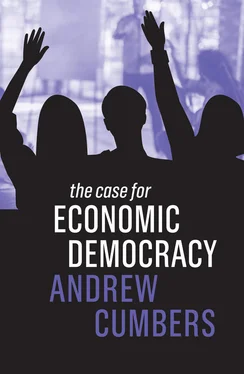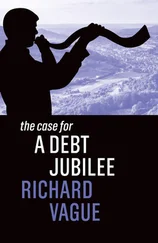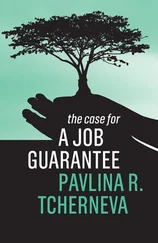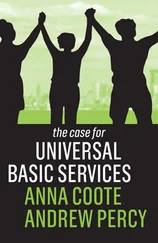Not only is there little sense of the economic fundamentals, but there is seldom much introspection among the liberal establishment on their own role in fashioning the current democratic crisis. While acknowledging that political elites have neglected the ‘white working class’, a rather simplistic and racist trope in itself, there is little critical reflection on the existing economic order that underpins this sense of disconnect. When genuinely radical popular policies such as more progressive tax regimes, dramatically raising minimum wages, a Green New Deal, or creating democratic public ownership are mooted, they continue to be derided or ignored by the liberal political establishment and its shrinking support base. 1There is still a commitment not to interfere with ‘business as usual’.
The roots of this liberal democratic crisis go back to the 1990s and the centre left’s embrace of economic policies that largely served global business interests. While Margaret Thatcher famously announced in 1981 that ‘there is no alternative’ to business-friendly, market-driven economic policies, it is the acceptance of her creed by the governments of Blair, Clinton, Schroeder, Jospin and other supposed progressives that have arguably contributed as much to our current impasse. The centre left’s headlong embrace of economic deregulation, privatization and marketization, now collectively described as neoliberalism, and the retreat from a traditional concern with social justice and income redistribution, leave many lower income groups bereft of political power and support. The argument made then was that, in the face of globalization, old left policies no longer worked because business would go elsewhere if threatened; though like many compelling ‘common sense’ narratives, there is little ‘real-world’ evidence to back this up. 2Instead, the centre left told us, progressives should provide a favourable environment to attract business which would lead to more tax revenues that could then be spent on public services. The financial crisis was the end game of this laissez-faire equivocation, though many still seem dangerously unaware of this.
The retreat from democratic scrutiny in economic policy
The espousal of neoliberal policy doctrine went hand in glove with the evacuation of democratic decision making from critical spheres of public life – especially economic policy – and their delegation to experts and technocrats. The best example is the tendency for politicians to make central banks ‘independent’. This is generally seen by mainstream media in a positive light. Surely it is just ‘good governance’ to put the setting of interest rates – critical for the wider economy in establishing the terms on which individuals and businesses are able to borrow and invest money – in the hands of ‘independent’ experts rather than interfering politicians? Those experts will take the longer view compared to the short-termist electioneering of career politicians.
Like many superficially compelling tropes, it falls apart under more critical scrutiny. For sure, it is frequently the case that politicians operate on short-term electoral cycles and many are driven by their own political advantage, rather than the greater good of securing sustainable and equitable economic development. Instead, why not let independent experts who have the requisite skills and knowledge take the key decisions for the longer term. But this begs the question: who do these ‘independent experts’ themselves represent? Are they themselves neutral arbiters of the common good? And, how might they make decisions on behalf of a public that is so diverse and multifaceted? While many individual politicians are of course driven by short-term and often quite narrow electoral interests, they are at least in their position because of some form of democratic process.
The argument for independence would have more force if the subsequent expert institutions drew upon a diversity of knowledge, experience and skills, accepting that the economy has many constituent parts, different needs and ways of life. Yet, policy makers are typically drawn from a narrow elite technocratic class rather than being reflective of society as a whole. The current membership of the Bank of England’s Monetary Policy Committee (staffed by eight men and one woman, all of whom are white) can broadly be described as financial elites, four of whom come from the private banking sector (investment rather than retail), one from a career within the Bank of England, two from the UK Treasury and two academic economists, one of whom had previously worked at the Federal Reserve Bank in Boston.
This is an extraordinarily narrow collective world view and in no way reflects the diversity of the United Kingdom, with no representative who can claim to speak for the UK’s minority nations and regions outside of London and the South East. Central bank independence is but one important element of a much broader trend for economic decision making – there is a revolving door between senior economic ministry positions and the financial sector in many countries – to become increasingly concentrated within a narrow elite removed from public scrutiny and democratic control. In the UK, this has meant that the growing dominance of financial activities over the broader economy (Lapavitsas 2013) is exacerbated by the values of the financial class shaping policy in its own image and to its own advantage.
Making the case for economic democracy in the twenty-first century
Confronting the various crises and challenges that we face requires tackling both the accumulation of wealth and the control of economic decision-making processes by financial and business interests. This is the renewed project for economic democracy that I outline in this book.
Conventionally, economic democracy is often conflated with industrial democracy or workplace democracy; the extent to which workers have ownership and democratic control over their labour, rather than subservience to managers and private owners. Its subject matter has typically been concerned with collective bargaining rights and employee participation in the workplace, or with the promotion of cooperatives and employee ownership. Matters are further complicated by the existence of the term ‘social democracy’, a dominant reformist trend in labour and progressive left politics in the period after 1945 (though having a much longer lineage) and which also has its roots in workplace trade union struggles and labour politics. While the workplace and the sphere of industrial democracy remain a critical concern here, I want to take a broader and more holistic view (see also Malleson 2013), exploring how we create a democratic economy as a more socially and ecologically sustainable alternative to the status quo. This requires consideration of how economic processes in their entirety, and not just in the workplace, are subject to collective decision making and ownership, widespread public deliberation and full democratic participation (Pateman 1970).
I also emphasize the importance, in a fully functioning economic democracy (Dahl 1985), of recognizing the rights of individuals in all their diversity to participate in this collective process. The individual is largely missing from earlier conceptions of economic democracy, particularly workplace-based forms, which have tended to see it as a collective project on behalf of workers as a class. This has been an error and a gift to the those on the right who have been able to equate the individual, freedom and capitalism – around notions of private property rights – at the expense of the common good. Here I wish to go beyond the needless antagonism between individual and collective rights. If we accept that, as individuals, all our economic activities involve social interaction and cooperation, then it follows that to realize our individual economic rights in a positive fashion – that does not at the same time infringe on the rights of others – inevitably requires forms of collective organization and public engagement.
Читать дальше












